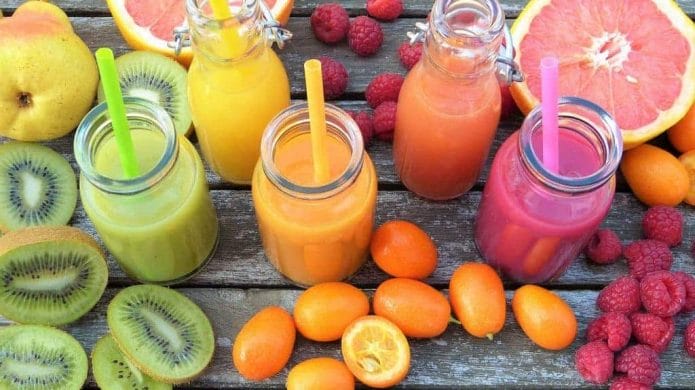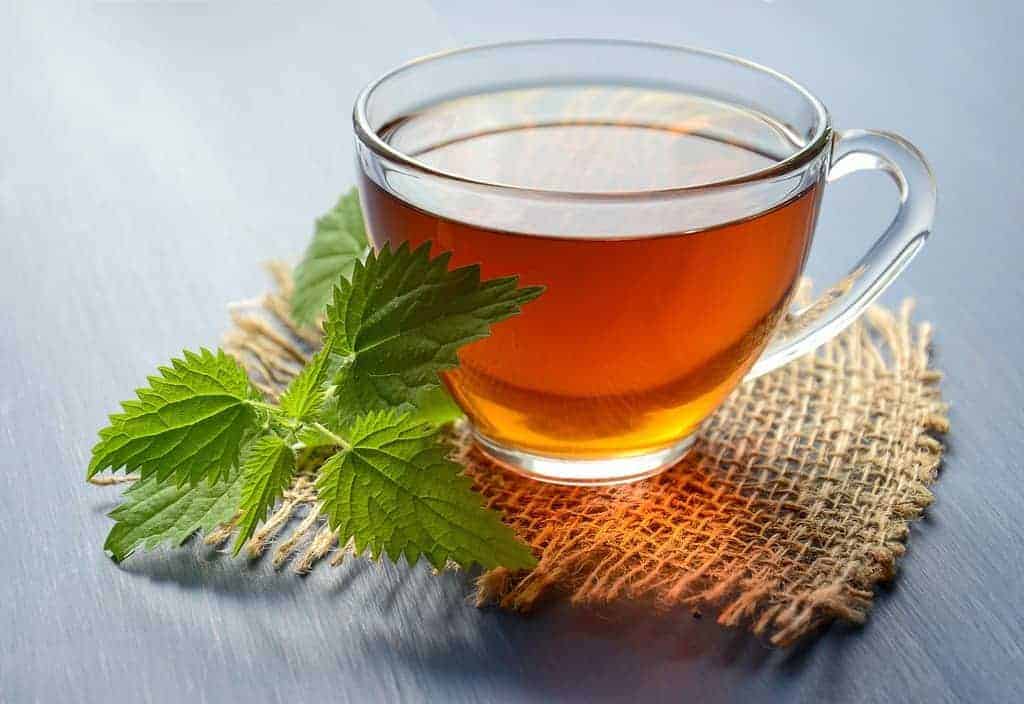In most cases, when we deal with overweight or obesity, the cause is excessive appetite. It leads to eating too much, in relation to the body’s needs, and, in consequence, to accumulation of reserves in the form of fat tissue. Therefore, if we have this kind of problem, it is worth finding out how to reduce appetite and thus achieve the desired body weight.
Table of contents
- 1 What is authentic hunger? Mechanism of hunger formation
- 2 Appetite versus hunger
- 3 Where does increased appetite come from?
- 4 How to reduce your appetite in natural ways?
- 5 How to curb your appetite using various organizational and psychological tricks?
- 6 Herbs and dietary supplements for curbing the appetite
What is authentic hunger? Mechanism of hunger formation
Hunger, otherwise known as craving, is a primal and physiological reflex, occurring when the level of glucose in blood drops, and the concentration of important nutrients – proteins, fats, vitamins and minerals, carbohydrates – decreases in the body.
At the same time, various mechanisms are activated, first of all the hunger center, located in the hypothalamus, next to the satiety center. Its functioning is controlled by hormones, first of all by ghrelin and orexins, as well as leptin, which is responsible for regulation of body fat stores and the feeling of hunger.
The proper functioning of the entire system is such that a shortage of nutrients triggers a reaction of the hunger center, which sends a signal about a shortage of energy reserves, and when the body receives enough energy from food, it activates the satiety center, which lets us know that we have had enough to eat.
Appetite versus hunger

Hunger, or craving, is not the same as appetite. The feeling of hunger is purely physiological and occurs when the body begins to lack nutrients. It appears gradually, it grows quite long, and it is accompanied by physical symptoms in the form of burping in the stomach or intestinal cramps. At a later stage headaches, malaise, trembling hands, weakness and even fainting occur.
Longer starvation may have fatal, often irreversible consequences – weakened immunity, water and electrolyte disturbances, which leads to heart disorders, and general cachexia. It can also cause the development of numerous latent diseases. It is worth noting that starvation, so often promoted as a method of weight loss, is strongly advised by doctors and dieticians. It causes not only the annihilation of the body, but also the slowing down of metabolism, which is the opposite of the expected effect.
Meanwhile, appetite is a sudden desire to eat something, usually a specific one, for example sweets. Appetite, or desire for a meal, has a psychological basis and may be caused by an immediate impulse, for example, by the sight or smell of food, by a conversation about food, or by a negative emotion. For many people eating is strongly connected with emotions and is a kind of compensation for unfavorable experiences and moods. While hunger cannot be ignored, an increased appetite should be definitely tamed.
Where does increased appetite come from?
Distinguishing between hunger and appetite is not always easy, hence the common phenomenon of overweight and obesity, especially in highly developed countries, where the supply of food in a visually attractive form, in order to expand the number of customers, far exceeds the real demand. And we, lured by colourful packaging and numerous advertisements, succumb to temptation, buying and consuming unnecessary products and gaining weight. The matter is even more complicated, because the tricks used by marketers appeal to our emotions, frustration, sadness, feeling of loneliness, and these are the easiest to suppress by eating favorite delicacies.
Sometimes the causes of excessive appetite have their source in specific disease states, diabetes, hypothyroidism, due to presence of parasites or hormonal disorders. Strong stress also contributes to increased appetite, stimulating excessive production of hunger-promoting cortisol.
Although it is quite common that the desire to eat a particular product is the result of a deficiency of a particular nutrient and thus the body demands a supplement, this certainly does not apply to sweets or snacks in the form of chips or salted nuts. Rather, it is about foods such as dairy products or raw vegetables and fruits as sources of vitamins and other valuable nutrients. For example, an overwhelming desire to eat tomatoes may indicate a potassium deficiency.
How to reduce your appetite in natural ways?

The main thing is to change current eating habits, including the type of products consumed. First of all, one should resign from highly processed food, in favour of raw and low-processed products. They help to maintain the correct level of glucose in the blood, so they give a longer feeling of satiety, they are also usually lower in calories.
A very important role in this matter plays the presence of fiber. Let us introduce to the diet raw or steamed vegetables and fruits, whole grain products, lean fish and meat, dried fruit, flaxseed, seeds. Avoid products containing harmful additives – preservatives, sweeteners, raising agents or dyes. It is best to prepare meals on your own, resigning from ready meals and semi-finished products.
A common problem for people who want to lose excess weight is a desire for something sweet. How to reduce the appetite for sweets? Reach for food items containing chromium, because usually it is a reduced level of this element that results in a greater desire for sweets. These will be dates, pears, broccoli, egg yolks, beef. A deficiency, on the other hand. Zinc can cause attacks not only of appetite, but also of hunger. To prevent this, eat peas and beans, onions, garlic and bran.
The way of eating is also important in limiting the appetite. Eat more often, but less often, and above all regularly, 4-5 smaller meals a day. Then we can avoid sudden fluctuations in glucose levels and attacks of unrestrained appetite. Don’t forget about breakfast, drinking plenty of water and eating foods with a high concentration of water – juicy vegetables and fruits. And if you can’t control the urge to reach for something to eat between meals, opt for healthy, low-calorie snacks like carrots, radishes, tomatoes, celery or green smoothies.
How to curb your appetite using various organizational and psychological tricks?
As a rule, we reach for excess food in order to suppress emotions, especially negative ones. For example, when we feel lonely, sad, hurt or disappointed, we try to comfort ourselves by eating “something good”, unfortunately mainly sweets. But also when we are in a nice company, we often cannot resist the temptation of snacking on crisps, salted nuts, candies, cakes. Finally, the smell or sight of some food triggers the desire to taste it. Because snacking has some elements of addiction, it is worth to use mechanisms which have been tested in case of other addictions.
Changes in the diet
1. eat a lot of vegetables all year round, in season reach for raw vegetables as often as possible. They are low-calorie and provide a lot of valuable fibre.
2) Let’s reach for products with a low glycemic index, contrary to appearances they are filling, and do not cause sudden jumps in sugar levels.
3) When we feel a desire for sweets, we should reach for fruit, and if we have to, let’s consume sweets in small quantities once a week at the most.
4. when you feel hungry and it’s not meal time yet, eat lettuce. It fills the stomach perfectly, and if eaten before or during a meal, it makes you eat less.
5. avoid foods containing artificial additives, which increase your appetite.
6. drink plenty of mineral water between meals.
Tricks of organizational character
1) Get rid of the products we reach for most often – sweets, crisps, sticks and instead buy dried fruit, pumpkin seeds, sunflower seeds and nuts.
We should prepare meals ourselves (while cooking we are already full mentally), planning them carefully and in advance. The meals should be tasty and aesthetically pleasing, but not abundant and filling.
We do our shopping on the basis of a previously prepared list and we buy only the products that are on it.
4) We don’t go to the store when we’re hungry because then we’re sure to buy more than we need.
Psychological Fortes
1. wait for your appetite – a sudden craving for something sweet, salty or crunchy will probably pass if you don’t give in to it immediately. Distract yourself from it by occupying your thoughts with something else, for example, playing a computer game, reading a newspaper, tidying up your desk, or even counting in your mind from 100 down.
2. avoiding situations connected with food. Instead of meeting friends at a restaurant, go for a walk. While watching TV, find something else to do with your hands – knitting, drawing, manicure, origami, peeling carrots to eat as a snack, etc.
Absolutely do not use any extra portions, we put on the plate so as to eat it all, but not overeat. We eat on a small plate, such a meal seems larger than it really is.
4) Eat slowly, this type of consumption allows for better assessment of the state of satiation, in addition to being beneficial to the digestive process.
5. in an extreme situation eat with the left hand (in case of left-handedness with the right). It is not comfortable but enables better control over the amount of eaten meal.
If, despite our best efforts, we cannot cope, it is worth consulting a psychologist or a psychotherapist, so that together we can work out mechanisms for dealing with emotions.
Herbs and dietary supplements for curbing the appetite

Certain herbs will also be helpful in taming excessive appetite. Among them are:
- Violet to increase the feeling of satiety
- dandelion root regulating blood glucose levels
- raspberry leaves to lower cholesterol and regulate sugar levels
- bladderwrack, which swells in the stomach and thus inhibits appetite
- white mulberry reduces the appetite, especially for sweets
- flaxseed, which not only provides dietary fiber, but also swells in the stomach and suppresses appetite
yerba mate and green tea are also effective in taming the appetite, as they are excellent for cleansing the body and supporting digestion. Chicory, peppermint, small-flowered mullein, swallow’s bane, bilberry leaves, buckthorn, wild strawberry, rue, and finally rosemary will also be an ally in curbing the appetite.
Drinking herbal infusions on a regular basis not only promotes a slim figure, but also provides the body with many valuable substances, including chromium which is essential in the process of metabolism, as well as prevents the formation of fat tissue and has a positive effect on the functioning of the entire digestive system.
The most important thing to remember is that you need to be able to get the most out of your diet, and you need to be able to get the most out of your diet. They usually contain plant pectin, such as apple cider vinegar, and extracts from plants known for their appetite suppressing and metabolism stimulating properties, such as bitter orange, guarana, black pepper, african mango and others. Appetite suppressant tablets also generally contain chromium, an element responsible for glucose metabolism, a deficiency of which can increase cravings for sweets.
Recommended products:
- Piperinox – an effective appetite blocker and fat killer in one

- Probiosin Plus – overweight reducer containing substances that suppress the appetite, substances that speed up the metabolism and valuable probiotics


